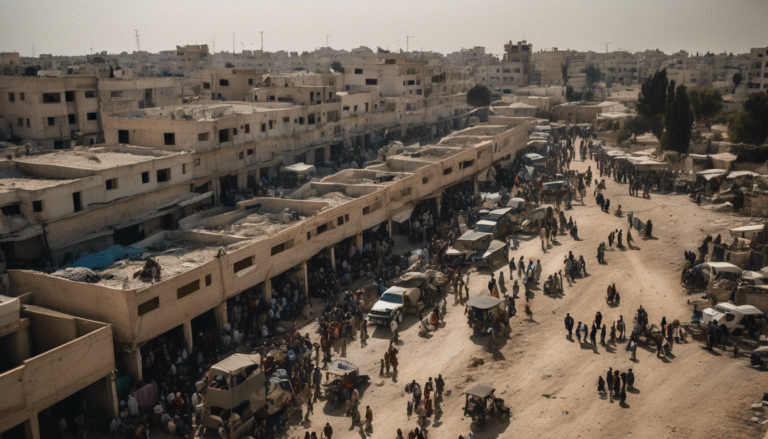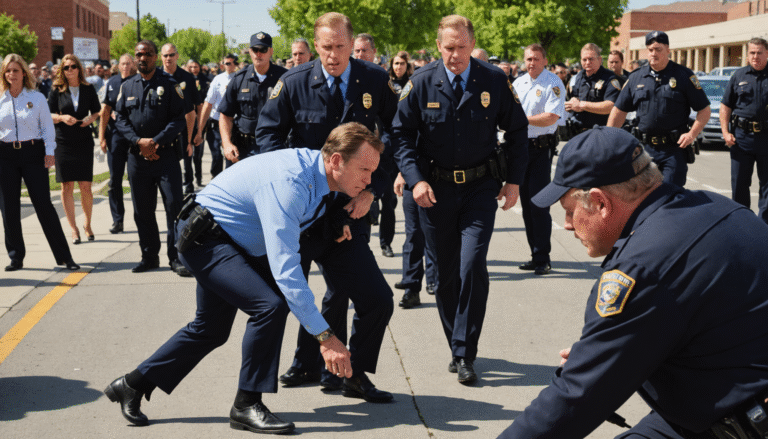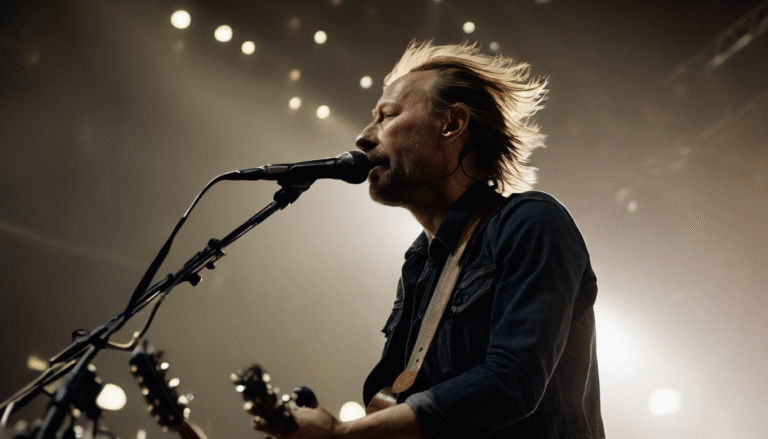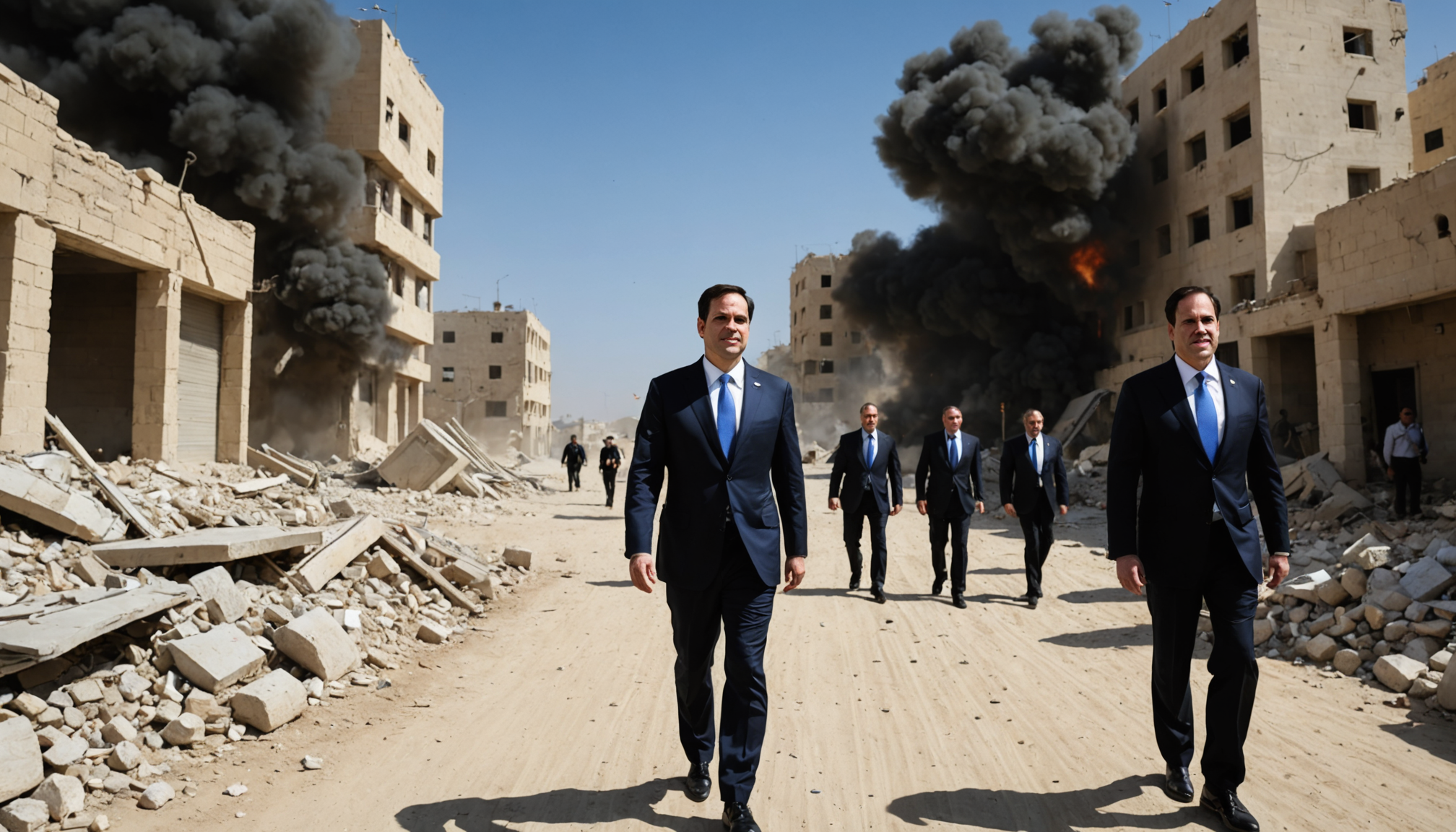
U.S. Secretary of State Marco Rubio arrived in Israel on Sunday as Israeli military forces intensified attacks on northern Gaza, flattening multiple high-rise buildings and killing at least 13 Palestinians. The visit comes in the wake of Israel’s controversial attack on Hamas leaders in Qatar last week, which has significantly disrupted ceasefire negotiations.

Rubio stated before his arrival that he would seek answers from Israeli officials about their vision for Gaza’s future following the Qatar operation that has upended efforts to broker an end to the conflict. His two-day visit also demonstrates support for an increasingly isolated Israel ahead of contentious United Nations debates regarding Palestinian statehood.
Diplomatic Tensions Following Qatar Attack
The diplomatic visit proceeded despite President Donald Trump’s reported anger at Israeli Prime Minister Benjamin Netanyahu over the strike in Doha, which Trump said the United States was not notified about beforehand. The attack has drawn widespread international condemnation and appears to have halted attempts to secure an Israel-Hamas ceasefire and hostage release agreement ahead of the upcoming UN General Assembly session.
On Sunday, Netanyahu, Rubio and their wives, along with U.S. Ambassador to Israel Mike Huckabee and his wife, toured the Western Wall and nearby excavated tunnels. During the visit, Netanyahu emphasized the strength of U.S.-Israel relations, stating, “I think his (Rubio’s) visit here is a testament to the durability, the strength of the Israeli-American alliance. It’s as strong and as durable as the stones of the Western Wall we just touched.”
The Trump administration is attempting to balance relationships with key Middle East allies in the aftermath of the Doha attack. On Friday, Rubio and Trump met with Qatar’s prime minister to discuss the fallout from the Israeli operation, illustrating this diplomatic balancing act.
Escalating Violence in Gaza
As Rubio’s visit unfolded, Israeli military operations intensified across Gaza. At least 13 Palestinians were killed and dozens wounded in multiple Israeli strikes on Sunday, according to local hospitals. The attacks targeted various locations, including a vehicle near Shifa hospital, a roundabout in Gaza City, and a tent in Deir al-Balah that killed six members of the same family.
According to Al-Aqsa hospital, the strike in Deir al-Balah killed two parents, their three children, and the children’s aunt. The family had recently fled from their shelter in Gaza City after originally being displaced from the northern town of Beit Hanoun.
- Israeli forces destroyed multiple high-rise buildings in Gaza City after issuing evacuation warnings
- Some buildings were destroyed less than an hour after evacuation orders were posted online
- The Israeli military claimed Hamas had positioned observation posts in these areas
- At least 13 Palestinians were killed in Sunday’s strikes across Gaza
- The Kauther tower in the Rimal neighborhood was completely flattened
The Israeli military stated that Hamas had positioned observation posts and intelligence-gathering capabilities in the targeted areas, with militants allegedly poised to strike Israeli troops. Defense Minister Israel Katz commented on social media platform X, sharing footage of the building demolitions with the caption: “The skyline of Gaza is changing.”
Humanitarian Crisis Deepens
The Gaza Health Ministry reported that two Palestinian adults died of causes related to malnutrition and starvation over a 24-hour period. This brings the death toll from malnutrition-related causes to 277 since late June, when the ministry began tracking these fatalities among adults. An additional 145 children have died of malnutrition-related causes since the war began in October 2023.
According to the Israeli defense body overseeing humanitarian aid, more than 1,200 trucks carrying aid, primarily food, entered Gaza over the past week. However, aid workers maintain that this assistance falls far short of meeting the territory’s enormous needs. Much of the aid is reportedly looted before reaching Palestinians in desperate need.
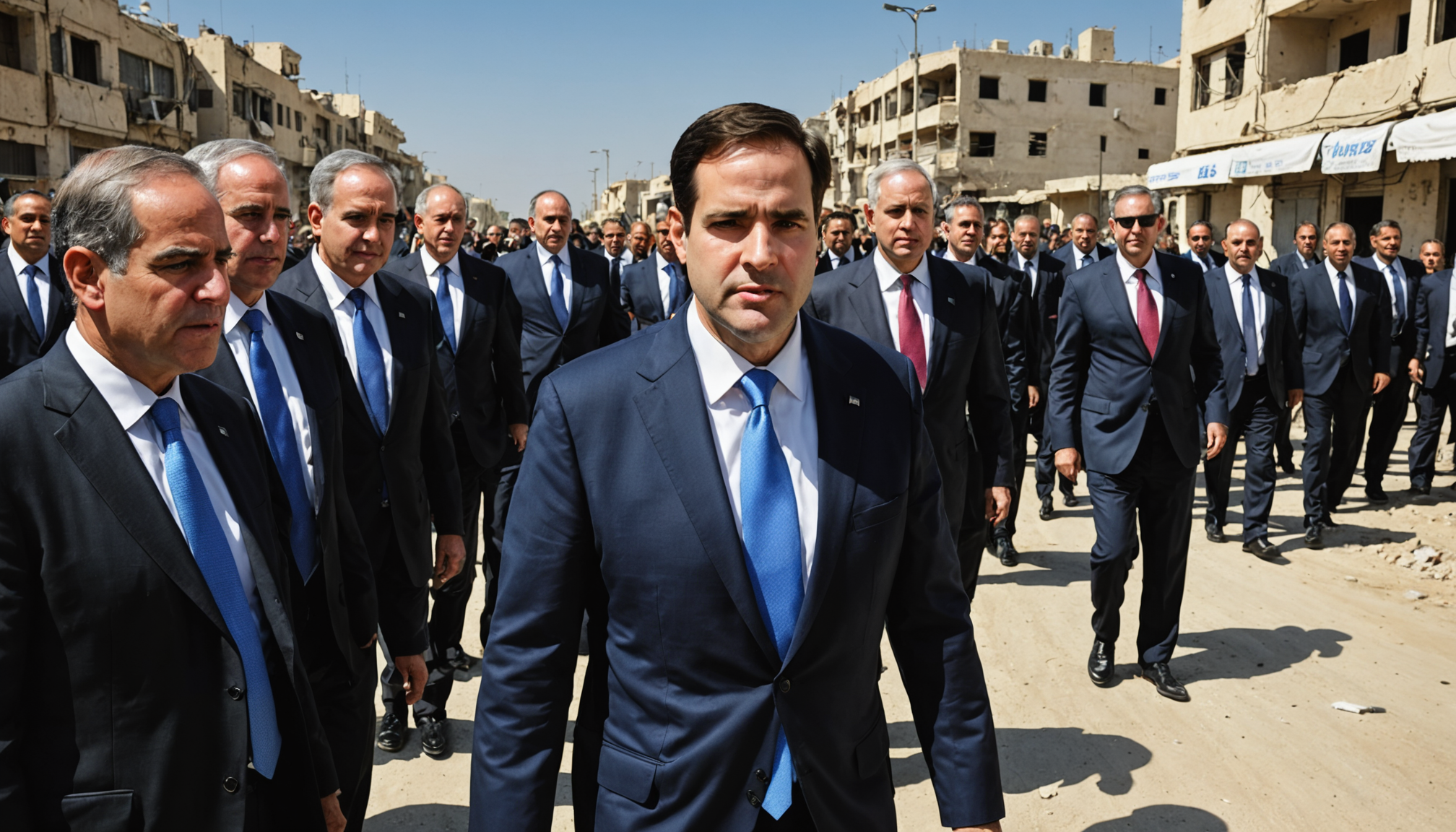
Some progress was made on infrastructure repairs, with international teams completing work on one of three water lines from Israel to Gaza. This has increased the daily water supply from Israel to 14,000 cubic meters (3.7 million gallons). Despite this improvement, Gaza’s water access remains severely limited as the territory endures a second summer under wartime conditions.
“This is part of the genocidal measures the (Israeli) occupation is carrying out in Gaza City,” said Abed Ismail, a Gaza City resident. “They want to turn the whole city into rubble, and force the transfer and another Nakba.”
The term “Nakba,” Arabic for catastrophe, refers to the displacement of approximately 700,000 Palestinians who were expelled by Israeli forces or fled their homes during the 1948 war surrounding Israel’s creation. Israel strongly denies accusations of genocide in Gaza.
Background
The conflict in Gaza began on October 7, 2023, when Hamas-led militants attacked southern Israel, killing approximately 1,200 people, mostly civilians, and abducting 251 individuals. Of the original hostages, 48 remain in Gaza, with Israeli authorities believing that 20 are still alive.
Israel’s retaliatory offensive has resulted in at least 64,871 Palestinian deaths, according to Gaza’s Health Ministry, which does not distinguish between civilians and combatants. The ministry reports that around half of those killed were women and children. The military campaign has caused extensive destruction across Gaza, with large portions of major cities completely destroyed and approximately 90% of the territory’s 2 million residents displaced.
Netanyahu strongly opposes the recognition of a Palestinian state, which will be a central topic at upcoming UN discussions. Meanwhile, foreign ministers from Arab and Islamic nations met in Doha on Sunday to forge a united response to the Israeli attack in Qatar, ahead of a summit bringing together leaders from these nations for high-level talks on Monday.
What’s Next
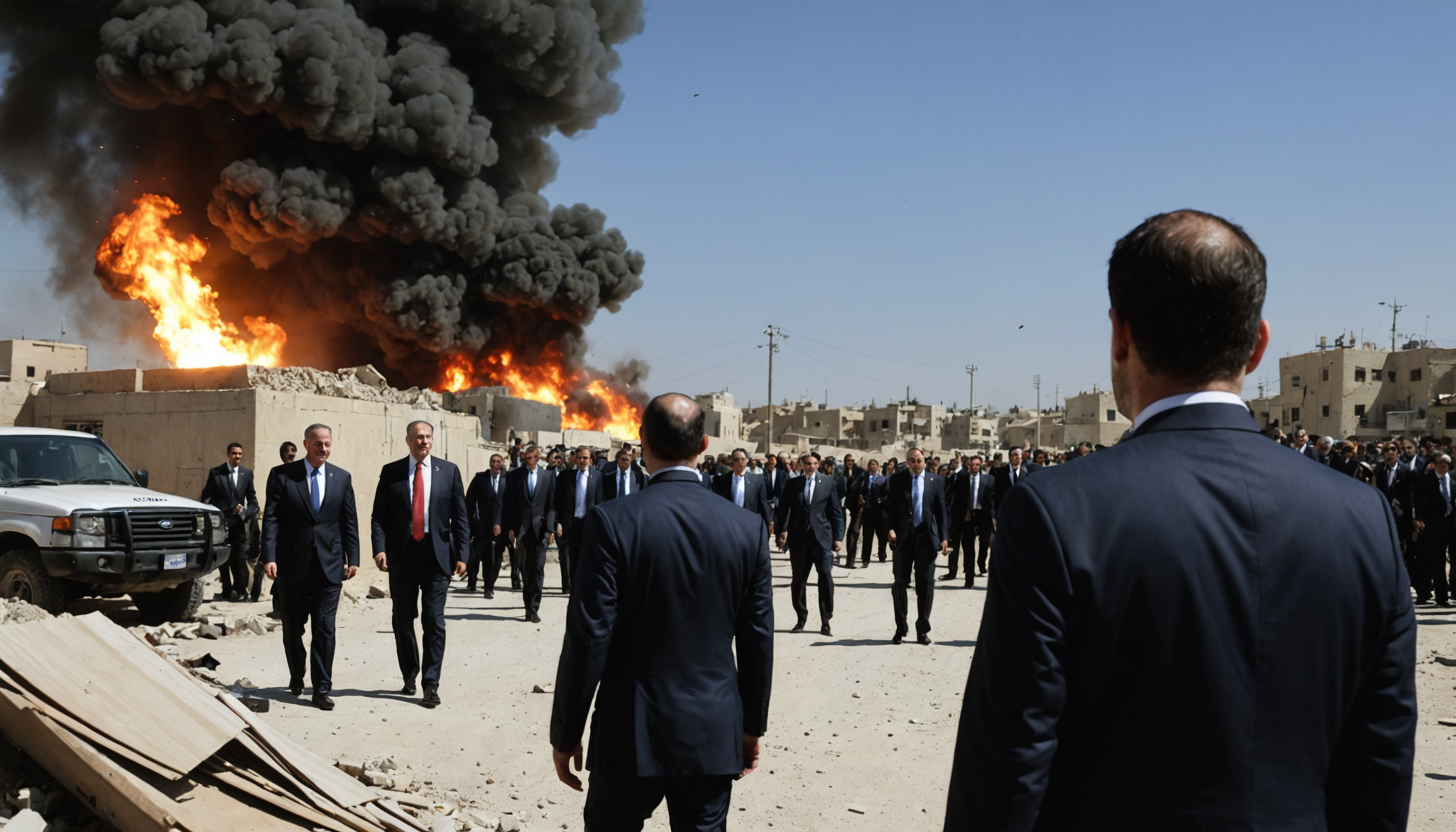
The Gaza war is expected to be a primary focus at the upcoming UN General Assembly session. The Israeli attack in Doha has complicated diplomatic efforts and appears to have derailed ceasefire negotiations that were underway before the operation.
As Rubio continues his two-day visit to Israel, he will likely press Israeli officials on their strategic vision for Gaza and address concerns about the humanitarian crisis affecting the territory’s civilian population. The United Nations is preparing for what is anticipated to be a contentious debate next week regarding commitment to the creation of a Palestinian state.
The dual meetings between U.S. officials and representatives from both Israel and Qatar highlight the Trump administration’s efforts to maintain relationships with key regional allies despite rising tensions. However, the path forward for peace negotiations remains unclear following the Doha attack, which has been widely condemned by the international community.
Water access continues to be a critical issue for Gaza residents, who often chase down water trucks that arrive every two or three days to fill bottles and containers before hauling them home. Despite recent repairs to one water line, the overall humanitarian situation remains dire as the conflict approaches its second year. [Source]


